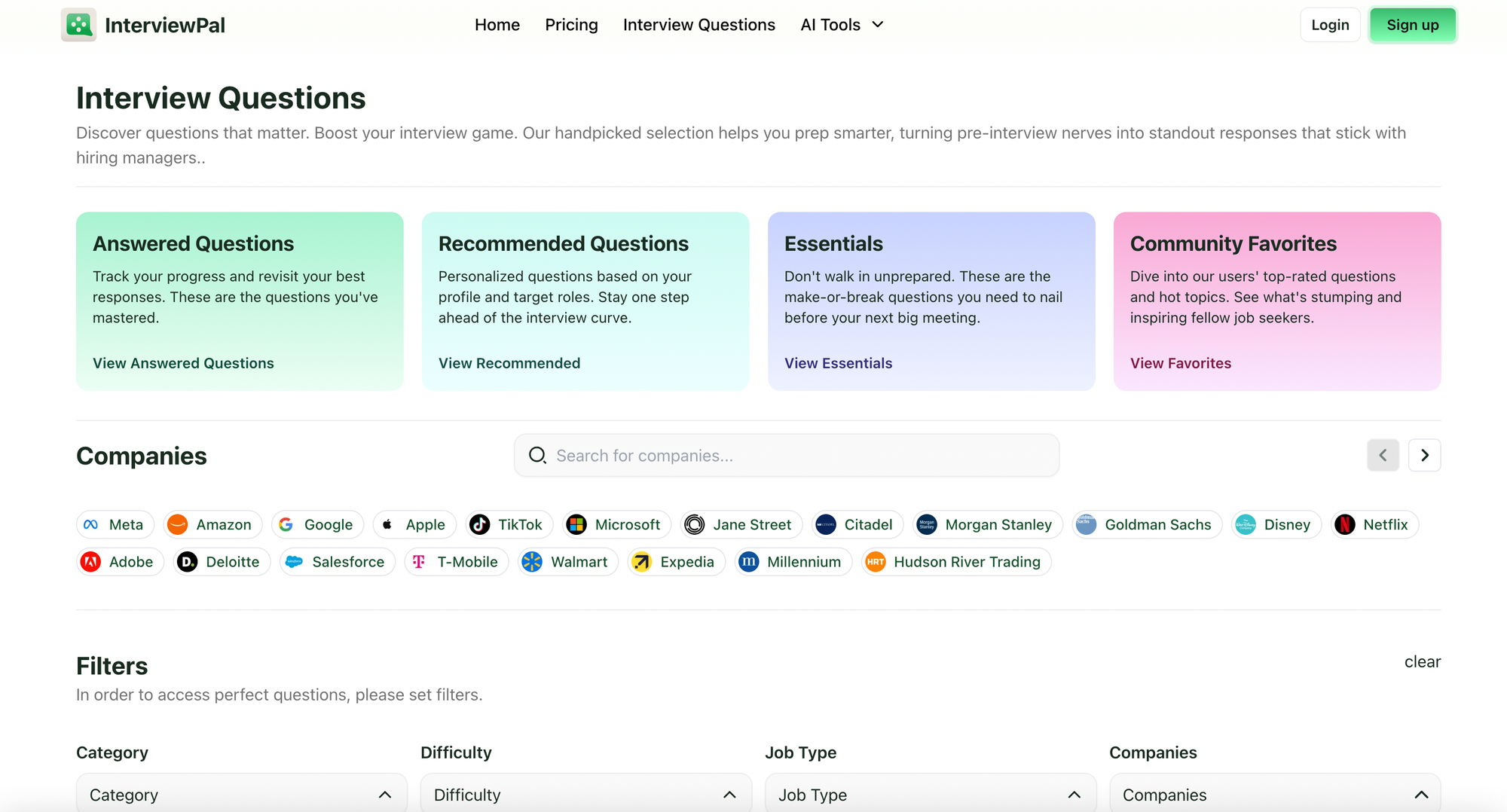One of the most common questions in job interviews is “Tell me about a challenging situation and how you overcame it.” It sounds straightforward, but this question trips up candidates because it asks for more than just a story—it’s asking for insight into how you think, react, and ultimately succeed when things get tough. How you answer this question can say a lot about your problem-solving skills, resilience, and ability to reflect, and that’s exactly what interviewers want to see.
In this article, I’ll walk you through how to tackle this question with a specific, thoughtful answer that resonates. We’ll cover the mindset behind your response, how to pick the right example, and the best way to structure it so it’s memorable and relevant. I’ll even include an example response and break down why it works.
Why This Question Matters?
Interviewers ask this question because they’re looking for more than just technical skills. They want to understand how you operate under pressure. When they ask you to recount a challenging situation, they’re not only assessing how you solve problems but also gauging your self-awareness, perseverance, and ability to learn.
In fields where challenges are constant—like tech, finance, or project management—this question becomes even more important. For example, a 2018 study in the Journal of Vocational Behavior found that resilience and adaptability are strong predictors of job performance, particularly in high-stress rolesng you to reflect on a difficult situation, interviewers are essentially probing whether you have these traits.
How to Pick the Right Example?
The first thing to get right is the story you choose. This is not a place for generic answers. Telling them about “a time I had a tight deadline” isn’t going to cut it. Your example should be specific, impactful, and ideally show your skills in a way that’s relevant to the job. Think of situations where you took action, learned something, or grew in a way that aligns with what the role demands.
Here’s a framework to help you choose a good story:
- High Stakes: Pick a situation where the outcome actually mattered. The more meaningful the challenge, the more engaging your story.
- Something You Can Own: Avoid examples where the outcome was mostly due to someone else’s actions. This is about your problem-solving, so focus on challenges where you played a major role.
- Relevance to the Job: Tailor your example to the role you’re interviewing for. If you’re applying for a product management role, talk about a project challenge. If it’s a customer service job, choose a situation where you dealt with a difficult client.
For example, let’s say you’re applying for a project manager role. A good example might be a time when a project was derailed due to a sudden budget cut, and you had to make quick decisions to keep things on track. In that case, the challenge is clear, your role is central, and the situation shows skills relevant to project management.
Structuring Your Answer: The STAR Method
Once you’ve chosen your example, the next step is structuring it. The STAR method is popular for a reason—it keeps your answer clear, focused, and easy for interviewers to follow. STAR stands for:
- Situation: Set the scene. What was happening, and why was it challenging?
- Task: Explain what your specific role was.
- Action: Describe what you did to overcome the challenge. This is the most important part.
- Result: Conclude with the outcome. Ideally, show a positive result or what you learned.
Let’s break this down with a sample response:
Example Response
Situation: “In my previous role as a project manager, we were working on a critical software rollout for a major client. Halfway through the project, the client announced a major budget cut. This was challenging because we’d already allocated resources based on the original budget, and adjusting on short notice seemed impossible without sacrificing quality.”
Task: “As the project manager, it was my responsibility to keep the project on track, despite these new limitations. My goal was to figure out how we could still deliver the essential features within the reduced budget.”
Action: “I started by sitting down with the team to re-evaluate each feature we were working on. We ranked them by importance, identifying core features that we couldn’t compromise on and secondary ones we could potentially cut or delay. Next, I reached out to the client to discuss these priorities and get their input on which areas they were willing to be flexible on. Finally, I worked with our finance and procurement departments to renegotiate some contracts, which freed up a small portion of the budget.”
Result: “In the end, we delivered the essential parts of the software on time and on budget, while maintaining quality. The client was pleased, and even though it was a scaled-down version, it met their needs. I learned a lot about managing priorities and negotiating under pressure, which has helped me in many other projects since then.”
Let's Break It Down
Why does this answer work?
- Specificity: It’s a detailed, concrete situation, not a vague story about “a time when things got tough.”
- Ownership: The candidate takes responsibility, explaining the specific steps they took to overcome the challenge.
- Relevance: This answer showcases project management skills—prioritizing, negotiating, and adapting to budget constraints—that are crucial for the role.
- Growth: Ending with a lesson learned shows self-awareness and a growth mindset, traits that companies value.
This structure helps interviewers see your thought process, which is often more important than the outcome itself. According to a study from the Academy of Management Journal, interviewers tend to prefer candidates who demonstrate a clear thought process over those who simply focus on the results .
What Should You Avoid?
It’s easy to go wrong with this question if you’re not careful. Here are some common mistakes:
1. Choosing a Trivial Challenge
Not all challenges are created equal. Telling a story about how you managed to organize your inbox under pressure doesn’t show resilience. Choose a situation where something real was at stake—a deadline, a client relationship, or even your job.
2. Being Overly Negative
Avoid framing your answer in a way that makes you seem resentful or blaming others for the problem. Stick to the facts and keep your tone neutral. It’s fine to explain why the situation was challenging, but don’t dwell on the negatives.
3. Rambling
The STAR method helps, but it’s still easy to get bogged down in details. Remember that interviewers have limited time. Keep your answer to about 2-3 minutes, focusing on the key elements.
4. Not Ending with a Lesson
When you don’t include a takeaway, your answer feels incomplete. Showing what you learned or how the experience shaped you adds depth and shows that you’re able to reflect and grow.
Also Read: Why Are You the Best Candidate for Us? How to Answer It Right in Interviews

How AI Interview Prep Tools Can Help?
AI tools like ours have started to change the way people prepare for interviews, especially for complex questions like this. With AI-driven feedback, you can get real-time insights into how clear your responses are, whether you’re staying on topic, and how engaging your answers sound. Practicing with an AI tool allows you to fine-tune your story and get objective feedback without needing a coach or peer review.
For example, Interview AI can help identify parts of your response that might sound too negative or pinpoint where you might be rambling. It’s an approach that’s much more precise and data-driven than practicing on your own, and it’s transforming how people prepare for high-stakes interviews .
Honesty and Confidence
Answering the “Tell Me About a Time You Overcame Adversity” question effectively isn’t about crafting a perfect story. It’s about demonstrating who you are when things get tough. Interviewers want to see that you’re adaptable, thoughtful, and capable of learning from your experiences.
The best answers feel honest because they are. Instead of reaching for a story you think the interviewer wants to hear, focus on one that genuinely challenged you. Authenticity resonates. When you talk about a real challenge that you faced with a genuine response, interviewers can sense it—and it makes all the difference.



